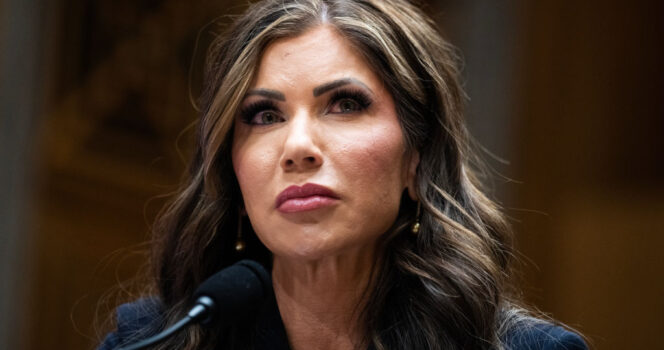
In a significant shift in U.S. immigration policy, Homeland Security Secretary Kristi Noem announced on Monday the termination of deportation protections for nearly 348,000 Venezuelans living in the U.S. under Temporary Protected Status (TPS). This policy change, which aligns with former President Donald Trump’s renewed immigration crackdown, means thousands could face deportation and lose their work permits as early as April.
The Department of Homeland Security (DHS) justified its decision by citing “notable improvements” in Venezuela’s economy, public health, and crime rates. However, the announcement has sparked deep concern among many Venezuelan families in the U.S., who now fear for their future and safety.
“I don’t know what will happen,” Ana Maria Pirela, a 26-year-old Venezuelan migrant with Temporary Protected Status, told Reuters, reflecting the uncertainty and distress felt by many.
Venezuelan activist Beatriz Olavarria warned that ending TPS for 350,000 Venezuelans within 60 days could have devastating consequences. She emphasized that some individuals may face life-threatening situations, political persecution, or imprisonment if deported back to Venezuela.
Under former President Joe Biden, TPS was expanded, offering protection to over 1 million people, including Venezuelans fleeing political and economic turmoil. However, under the Trump administration, Kristi Noem canceled an 18-month extension and ended automatic renewals, leaving many Venezuelans with an uncertain future and limited legal options.

Additionally, the U.S. government is reportedly considering ending another program that currently allows 530,000 people from Cuba, Haiti, Nicaragua, and Venezuela to live and work legally in the country. Meanwhile, Venezuela’s economic crisis persists, with the minimum wage stagnating at just $3 per month. Over 7.7 million Venezuelans have already fled the country due to the ongoing crisis, seeking refuge in various nations across the Americas and beyond.
As the situation unfolds, the Venezuelan opposition is urging the U.S. government to reconsider its stance and maintain TPS protections. They argue that revoking these protections could exacerbate the already dire conditions faced by Venezuelan migrants and further strain U.S.-Venezuela relations. With the fate of thousands hanging in the balance, advocacy groups continue to push for legislative solutions that would provide long-term stability for those affected by these policy changes.


